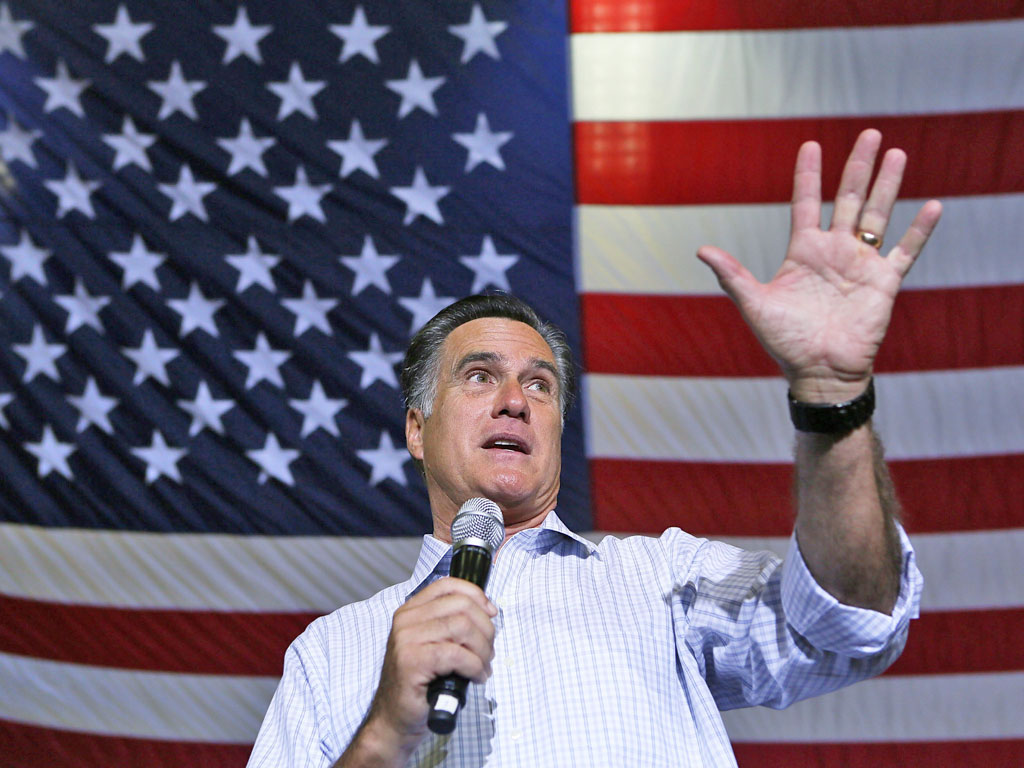Mitt Romney’s aim was to present himself with the demeanor and grasp of foreign and national security issues of a president of the United States. He succeeded. President Obama sought to make Romney appear unqualified to be president and commander in chief. He failed. And that was the story of the third and final presidential debate.
This may or may not give the Romney campaign a boost, but it won’t hurt. Romney wasn’t stumped or forced on the defensive on any issue. He committed no gaffes. As the challenger, Romney didn’t need to “win” the debate-he only needed to hold his own against Obama’s deeper knowledgeable, sharp criticism, and occasional irritation. And he did.
Romney made a point of not bickering with Obama. He didn’t quibble about the administration’s failure to give a consistent explanation of the attack on the consulate in Benghazi, Libya, in September. His disagreements with Obama on Syria, Afghanistan, terrorism, Egypt, and China were either slight or non-existent.
Putting distance between himself and Obama on policy wasn’t his game. Nor was his approach to Monday night’s debate especially combative, though he was critical of Obama’s “leadership.” It was to put himself in the best possible light by offering plans of his own and specific details on every issue.
It wasn’t enough for Romney to note that al Qaeda was on the rise in the African country of Mali. It was “northern” Mali. And while the Navy wanted 313 ships, under Obama it has 285. He also listed the four recommendations of Arab scholars to improve conditions in the Middle East.
Throughout the debate, Obama labored to portray Romney as a neophyte on grave international matters, but mostly his effort didn’t work. He described Romney as a chronic flip-flopper and said he was “all over the map” on issue after issue. On Russia, for instance, he told Romney: “Every time you offered an opinion you were wrong.” He called Romney reckless and wrong.
Obama sneeringly suggested Romney “maybe hasn’t spent enough time looking at how our military works.” Fewer Navy ships? “Well, governor, we also have fewer horses and bayonets because the nature of our military’s changed,” the president said. This came across as condescending. The tone was less than presidential.
For his part, Obama had no trouble demonstrating his command of foreign and national security issues. He deals with these issues every day. He defended himself strenuously against Romney’s main attack that he isn’t a strong leader.
Presidents are supposed to have an advantage in debates on foreign policy. After all, they actually conduct it. Challengers don’t. Yet they often do well. Ronald Reagan did in his debate with President Carter in 1980. In 2004, Senator John Kerry delivered a strong performance in his debate on foreign affairs with President Bush.
It’s not that the bar is set lower for challengers. What matters is whether, in 90 minutes of debate, they can show they’re well-versed on world issues, able to discuss them fluently, and have an agenda for handling them. This is a different sort of test and Romney passed it.
